The views expressed in our content reflect individual perspectives and do not represent the authoritative views of the Baha'i Faith.
Night descended on Yosemite National Park, the beginning of a twilight adventure for our family.
We groped in the backpack for a flashlight, quickly shined it on the paved path, and then turned it off again. Slowly, our eyes adjusted to the dark. Our ears cocked to the chants of hoot owls, the Gregorian monks of the forest, and to the rustling of deer that shied away from the soft plodding of our footfalls. A dim moon finally turned the path ghostly silver. The thunder of the distant waterfall lured us along. Then, as we came around a bend, the bellowing falls suddenly loomed before us like a white skyscraper, enshrouded in mist, silencing the children’s voices into a rare state of reverence.
We knelt on the path, rolled to our elbows and finally onto our backs, and stared straight up at the summer constellations. The sky had deepened to a dimensionless velvet ocean. I thought about time and space and what they meant in a sky like that. The context of our own comings and goings began to slide down on the relevance scale like water molecules hurtling over the cliff and into the torrent.
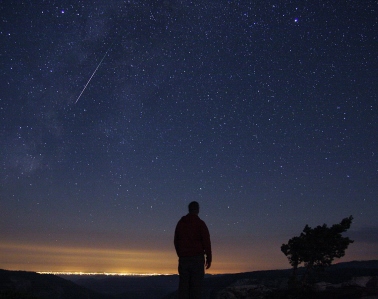
We lay silently below Yosemite Falls, searching for the first spit of stardust, for some suggestion of ancient cosmic dust. We had never seen a meteor shower so far from city lights, and this was the big one, the annual Perseid. Under a mid-August panoply of stars, we awaited our cleansing, due to begin at 11:00 pm.
Perseus did not disappoint us. A brilliant raking light suddenly speckled the infinite night, and then another. The earth had intercepted the comet’s concourse once again on its race around the sun, unloosing spangles of gargantuan glitter to rain down on earth.
I was not prepared for the sense of awe that stuck in my own throat as we lay there, wondering how many rainbows of light had spilled from the universe over the millennia, as trustworthy as rock and rain and starlight — and how many meteor showers had gone unnoticed by city dwellers collected under clusters of streetlights, spotlights, and lamplights.
Looking up, the trivialities of the daily human experience suddenly paled against this annual galactic tradition. How could we have missed the drama before? It made me feel insignificant. What comes of a lifetime of struggle and effort? What point was there to each human life in a universe so vast? Is humanity a mere speck on a random planet?
Suddenly, the deeper spiritual truth of the scientific metaphor descended on me, shouting not of hopelessness but of meaning. Until we experience the depth of true darkness, I realized, we do not see pure light. In the humbling of such moments, we listen more closely, we look more intently, and the mysteries of the universe reveal themselves to us. We awaken to a new gratitude that we have the gift of senses to perceive such beautiful light.
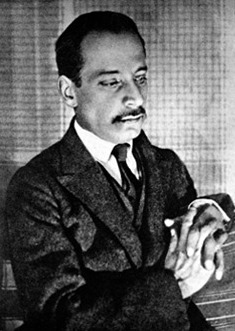
Similarly, all our lives, we shy away from darkness, even though times of pain, doubt, or loneliness in the universe could be our finest. As Rainer Maria Rilke pleaded, in Letters to a Young Poet: “Live the questions now. Perhaps you will then gradually, without noticing it, live along some distant day into the answer.”
The Baha’i teachings suggest that even when the sky rains hardship upon us, the meaning becomes clear as we learn to accept life’s ephemeral discomforts with “radiant acquiescence.” These encounters with the contrast between birth and death, gain and loss, evolution and decline can awaken wonderment, as they strengthen our resilience, convictions, faith and compassion – like strokes of light on a dark canvas.
Yesterday, a man sitting near me in a public square wore a shirt that read “God doesn’t waste human suffering.” A few blocks away at a peace rally, a mother spoke who had started an international peace movement after losing a son in battle. Her audience surely grasped the need to let go of grief and embrace the strengths it offers us — and to accept the joys that come with greater reverie after enduring adversity.
As Baha’u’llah, the Founder of the Baha’i Faith, wrote:
“My calamity is my providence. Outwardly it is fire and vengeance, but inwardly it is light and mercy. ”¹
A study of altruists in society conducted at Humboldt University identified “overcoming hardship” as one of the prevailing common childhood experiences of adults who later become the beneficent leaders in society. ² Hardship, it seems, is a prerequisite for maturation. An untested spirit, like an unplayed instrument, can never exude the same resonance when played.
For me, a night that began on the brink of despair about humanity’s in the universe had ended with a sense of the oneness of all things. The meaning of “light and mercy” sank in as I lay there and watched the shooting stars pierce the night sky with these clear words: Be grateful for the darkness. It opens our eyes to true illumination.
1) Hidden Word of Baha’u’llah #51, Baha’i Publishing Trust, 1985 reprint; p. 52.
2) Oliner, S. & P. Toward a Caring Society, Praeger, Westport, Connecticut, 1995; p. 202.


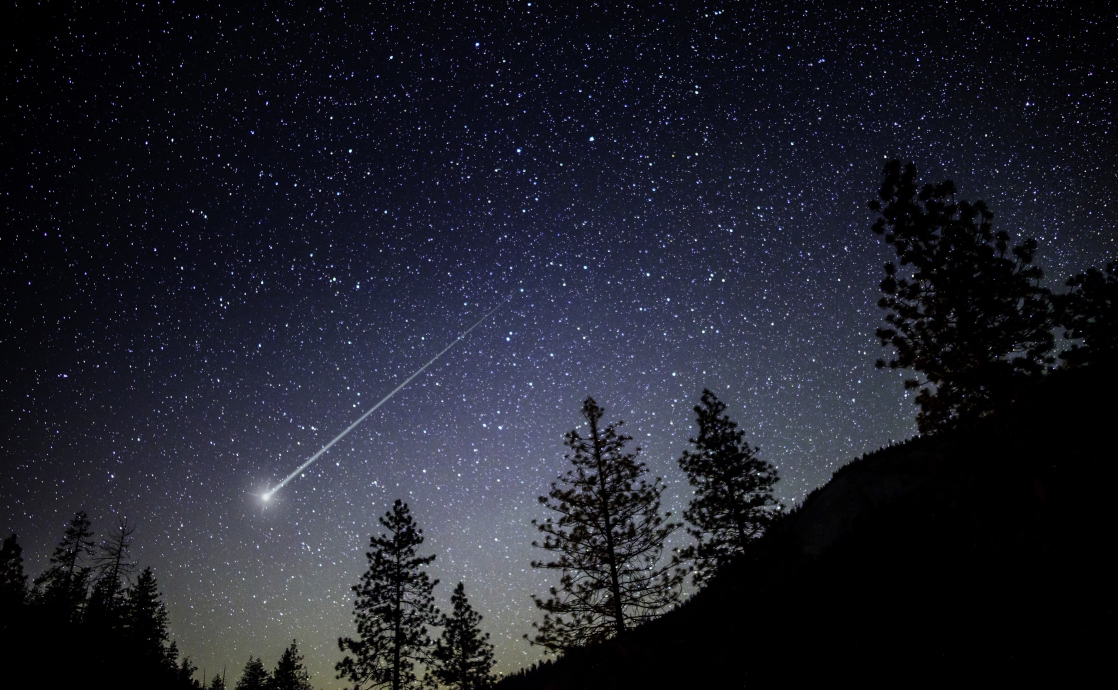


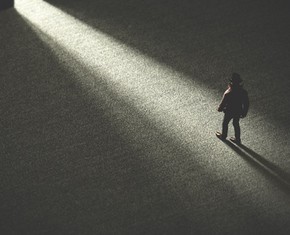
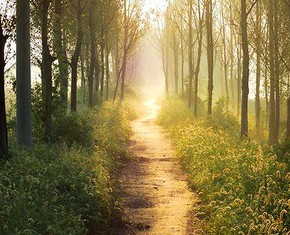









Comments
Sign in or create an account
Continue with Googleor